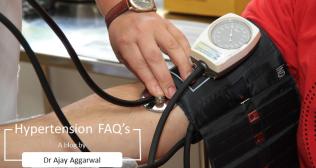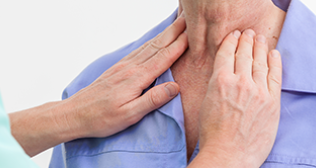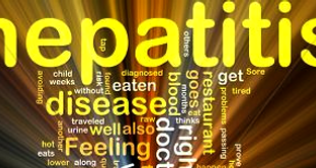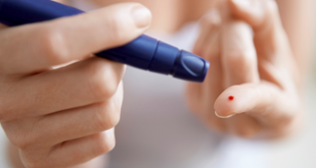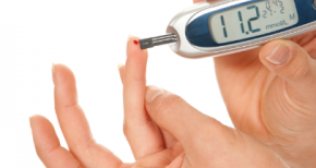
What is Polydipsia in Diabetes: Cause, Symptoms & Ways to Manage
Introduction
Drinking more than 2 liters of water per day is the best bet to stay hydrated. But what if somebody feels thirsty all the time?
Polydipsia refers to an abnormal feeling of constant thirst. We all feel thirsty at various times during the day. Sufficient daily water intake (several glasses) is important as water is crucial for many bodily functions, including regulating body temperature and discarding waste.
However, if one feels thirsty all the time or their urge is more potent than usual and continues even after drinking, it can be a sign that not all is well inside their body. It is one of the initial hallmark signs of diabetes.
Causes of Polydipsia
Elevated thirst is often a reaction to losing fluid during exertion or exercise or consuming salty or spicy foods. It can also be caused by:
- Loose, watery, more frequent bowel movements
- Vomiting
- Excessive sweating
- Significant loss of blood
- Certain prescription medicines, such as anticholinergics, demeclocycline, diuretics, and phenothiazines
- Elevated blood sugar levels in individuals suffering from diabetes or undiagnosed diabetes
Following factors might lead to a persistent excessive thirst:
- Prediabetes
- Diabetes mellitus
- Diabetes insipidus, a condition unrelated to diabetes mellitus that impacts the kidneys and the hormones that interact with them, producing large volumes of urine
- Gestational diabetes
- Dehydration
- Loss of body fluids from the blood into the tissues because of burns, severe infections (sepsis), or failure of vital organs such as the heart, liver, or kidney
- Psychogenic polydipsia, that is, compulsive water drinking linked with mental or psychiatric disorders
Interestingly, excessive thirst can be caused by raised blood sugar (hyperglycemia) and is also one of the “big 3” indications of diabetes mellitus.
Link Between Type 1 Diabetes (T1D) and Polydipsia
Type 1 diabetes (which is autoimmune) causes the pancreas to stop producing insulin, a hormone that is crucial to extracting energy from food. The disease impacts individuals of all age groups and is not related to diet or lifestyle interventions. People living with this disease must regularly monitor their blood-glucose/sugar levels, take insulin, and judiciously regulate insulin doses with eating and activity throughout the day.
Link Between Type 2 Diabetes (T2D) and Polydipsia
In type 2 diabetes, a person’s body does not produce sufficient insulin, and their cells are likely to lose their sensitivity to insulin. Either way, the usual way in which blood sugar or glucose levels are regulated is disrupted. Kidneys try to ward off excess sugar in the bloodstream before it can harm the body. A person urinates more frequently than they usually do. This increased urination leads to dehydration, and when an individual is dehydrated, the body activates the thirst mechanism to tell that they need to replenish lost fluids.
Polyuria-Polydipsia Syndrome
A rare problem in clinical practice is the combination of the production of an “abnormally” large quantity of urine with the persistent intake of abnormally large amounts of fluids. It is a frequent symptom in children and is mainly attributed to diabetes mellitus. In individuals with diabetes insipidus, central or nephrogenic factors can led to the development of polyuria-polydipsia syndrome. Sjögren’s syndrome, a rare autoimmune disease in children, can impact more than one organ.
Osmotic Diuresis in Hyperglycemia
Osmotic diuresis, characterized by excessive urination because of the presence of certain compounds in the fluid filtered by the kidneys, is caused by hyperglycemia. This condition, in turn, results in hypovolemia (wherein the body loses fluid like water or blood), hyponatremia (when the level of sodium is lower than usual), reduced glomerular filtration rate (GFR), and worsening hyperglycemia. Elevated blood sugar or glucose levels at the cellular level result in mitochondria injury by producing reactive oxygen species. Hyperglycemia increases the levels of pro-inflammatory cytokines, leading to improper immune system functioning. These alterations can eventually lead to an increased risk of infection, impaired wound healing, failure of more than one organ, prolonged stay at the hospital, and death.
Recognizing the Symptoms of Polydipsia
As everyone and anyone will have experienced the urge to drink fluids, it is very important not to jump to grave conclusions. However, the symptoms of polydipsia are identified as:
- Having continual and unexplained thirst, regardless of the amount of fluid you drink
- Excreting more than 5 liters of urine a day
Polydipsia: A Symptom of Diabetic Ketoacidosis?
More than average blood glucose or sugar levels (hyperglycemia) can cause polydipsia. Consistently or extremely high blood sugar levels and elevated body ketone concentration can lead to diabetic ketoacidosis (DKA). Excessive thirst is a predominant early symptom of DKA.
Insatiable Thirst: Unraveling Ways to Manage Polydipsia
It can be managed based on the cause. Controlling blood sugar levels by eating a healthy diet, being physically active by doing aerobic exercises, working out, and avoiding nicotine can aid in managing polydipsia symptoms in individuals with diabetes.
If a person is constantly thirsty, there is only one thing they can be sure of: Something is not right, and they need to get to the root of it. A healthcare provider can help work out why a person is feeling this way, and if they are suffering from diabetes or some other health condition, they can avail themselves of the treatment they need. A person should see this treatment as urgent. Polydipsia, though quite inconvenient by itself, is technically just a symptom. A person must find out what’s disrupting their health and stop it from causing whatever other forms of damage it may be doing.
Popular Searches
Hospitals: Cancer Hospital in Delhi | Best Heart Hospital in Delhi | Hospital in Amritsar | Hospital in Ludhiana | Hospitals in Mohali | Hospital in Faridabad | Hospitals in Gurgaon | Best Hospital in Jaipur | Hospitals in Greater Noida | Hospitals in Noida | Best Kidney Hospital in Kolkata | Best Hospital in Kolkata | Hospitals in Rajajinagar Bangalore | Hospitals in Richmond Road Bangalore | Hospitals in Nagarbhavi Bangalore | Hospital in Kalyan West | Hospitals in Mulund |
Doctors: Dr. Rana Patir | Dr. Rajesh Benny | Dr. Rahul Bhargava | Dr. Jayant Arora | Dr. Anoop Misra | Dr. Manu Tiwari | Dr. Praveer Agarwal | Dr. Arup Ratan Dutta | Dr. Meenakshi Ahuja | Dr. Anoop Jhurani | Dr. Shivaji Basu | Dr. Subhash Jangid | Dr. Atul Mathur | Dr. Gurinder Bedi | Dr. Monika Wadhawan | Dr. Debasis Datta | Dr. Shrinivas Narayan | Dr. Praveen Gupta | Dr. Nitin Jha | Dr. Raghu Nagaraj
Specialities: Heart Lung Transplant | Orthopedic |
Categories
Clear allMeet the doctor

- Diabetology/Endocrinology | Diabetology/Endocrinology | Endocrinology
-
40 Years
-
2500







